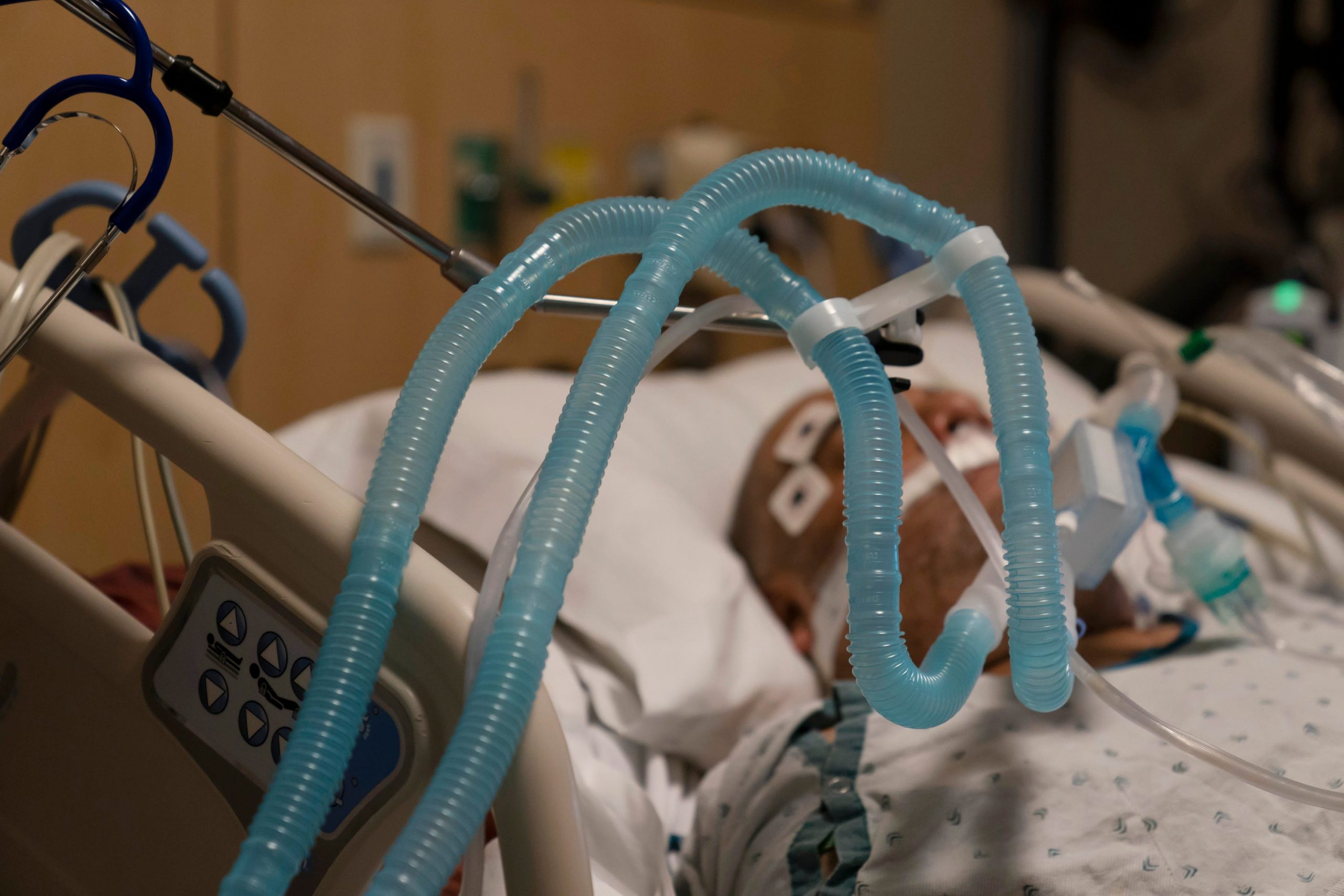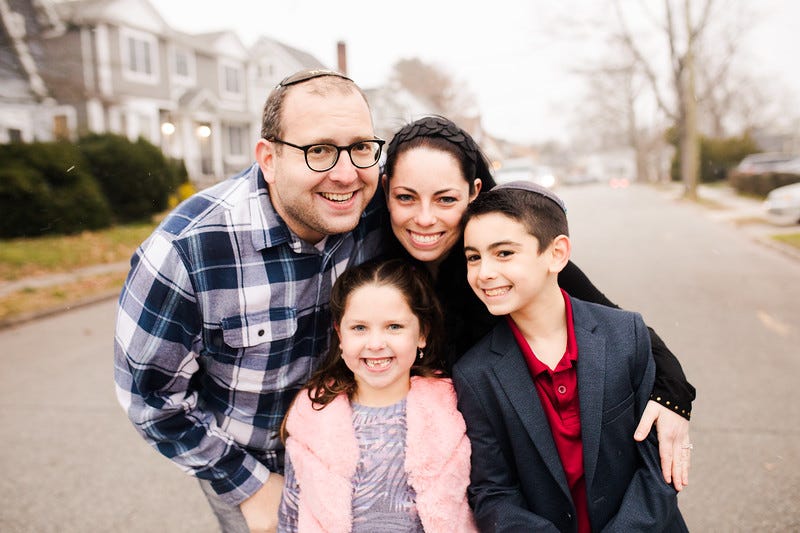
Jae C. Hong/AP
- About half of COVID-19 patients on ventilators die, according to a 2021 meta-analysis.
- It's unclear why some, like Geoff Woolf, a 74-year-old who spent 306 days in the hospital, survive.
- A man denied experimental treatments and a woman almost taken off life support made it too.
- See more stories on Insider's business page.
Nicky Woolf first prepared to say goodbye to his dad, Geoff Woolf, last April, after brain scans showed no activity.
Geoff, a 74-year-old former lawyer who lives in North London, had been diagnosed with COVID-19 after collapsing in his kitchen one morning in March. Doctors initially suspected the otherwise healthy man had meningitis.
When Nicky and his two brothers were called in for that final moment with their dad, the siblings asked for one final brain scan, which lit up just a touch. They had renewed hope the visit wouldn't be the last.
Then, in July, Geoff "suddenly woke up," according to The Guardian, after 127 days in the hospital, 67 of which he was on a ventilator.
He underwent inpatient rehab for another 179 days and was finally discharged in January after a total of 306 days in various hospitals. Few, if any, COVID survivors have spent so long in the hospital.
"It's been a heck of a fight," Nicky, who, along with his brothers set up an audio book program for COVID-19 intensive care patients in honor of Geoff, told the Guardian.
-Nicky Woolf (@NickyWoolf) May 2, 2020
These days, Geoff is undergoing outpatient care to treat the symptoms of the virus's brain damage, which caused paralysis on one side of his body and difficulty speaking. He's also adjusting to the disappointing fact that the virus destroyed his taste for wine.
"The best thing about being at home is not being at hospital," he told the BBC. "I can eat what I want when I want. I can see my boys and see friends. I'm just so very proud of the boys."
Studies show that about half of patients with COVID-19 who are put on ventilators don't survive, but estimates vary widely due to differences in reporting and positive developments in treatment over the course of the pandemic.
Here are the stories of two other coronavirus survivors who beat the odds. It may take a long time for researchers to understand why people like them pulled through, while so many others did not.

Abbie Sophia Photography
A young father 'miraculously' pulled through
Michael Goldsmith doesn't remember much of last March.
The now 35-year-old IT professional and dad in Bergenfield, New Jersey, spent the latter part of the month, as well as the beginning of April - 22 days in total - in a medically induced coma and on a ventilator due to a severe case of COVID-19.
Doctors had tried a variety of therapies, including antimalarials and antibiotics, but all failed. His family fought for access to the drug remdesivir, which they feared was his only chance of survival. "We were at the 'what the hell?' point," Goldsmith's wife, Elana, previously told Insider. "We didn't have anything to lose." But they were denied the drug due to what Goldsmith's father-in-law called a "bureaucratic glitch."
And yet, for reasons unknown to doctors, and called a "miracle" by his family, Goldsmith survived.
Now, a year after his first symptoms set in, Goldsmith is feels physically "stronger than ever," he told Insider, even running a 5K in Thanksgiving. When he was first discharged, he couldn't walk without assistance.
He's not entirely his old self, though: He has a cochlear implant to help account for COVID-related hearing loss and is receiving treatment for anxiety, PTSD, and depression, which set in months after his discharge.
"I did not anticipate when I left the hospital that I and the world would still be dealing with COVID one year later," Goldsmith said. "But I know now that we are moving in the right direction and making amazing medical advances to get the world back on track."
A woman in her 20s 'died for 30 minutes,' and is now walking again with assistance
When Tionna Hairston's heart repeatedly stopped beating for 30 minutes, her doctors worried yet again that she wouldn't make it.
The 26-year-old in North Carolina was diagnosed with COVID-19 in May 2020, and subsequently suffered a stroke that led to bleeding in her brain and blood clots in her heart that caused the cardiac arrest, the Winston-Salem Journal's Richard Craver reported.
The conditions left her unable to fully use her arms and legs, and she was put on a ventilator for more than two months. She also suffered kidney and liver failure.
Doctors "thought that we should take her off of life support because she had no hope for life," Hairston's mom, Stacey Peatross said, according to Rasheeda Kabba, who covered the story for multiple local outlets. "They thought she would be a vegetable. She wouldn't have any quality of life at all."
They were wrong. In October, she walked out of the hospital after being in medical care for 137 days. "My faith in God and the fact that I wanted to walk again" allowed her to survive, Hairston said.
These days, Hairston can walk with help and her smile is returning, the local ABC Channel reported, though she has trouble with her memory and speech. It may be years, doctors say, before she can share her own story with COVID-19.
It's unclear why some people get severe COVID-19 to begin with, and why only some do bounce back
Doctors don't know why some young, previously healthy people get struck with life-threatening COVID-19, while some others with underlying risk factors barely register a sniffle.
It's also unclear what differentiates those who recover from weeks or months on a ventilator from those who die.
And, it remains unknown why some people become coronavirus "long haulers," even if they were never hospitalized, while others' symptoms resolve within a few weeks. However, longer-lasting symptoms are more likely among people over 50, those with two or three chronic illnesses, and perhaps those who had serious COVID-19, Dr. Anthony Komaroff wrote in Harvard Health Letter.
While research is underway to help solve these mysteries, clinics are opening to support long-hauler patients who, while waiting for the why, want to know how to feel better now.
"We're fixers and healers, we want to have a clear diagnosis, and we want to fix this," Dr. Ruwanthi Titao, a cardiologist at one such clinic at the Mount Sinai Hospital in New York City, previously told Insider. But when there are flares of symptoms, or when there are relapses or setbacks, of course, we take it very much to heart."
"It's been a very arduous, slow process of improvement," she said.
